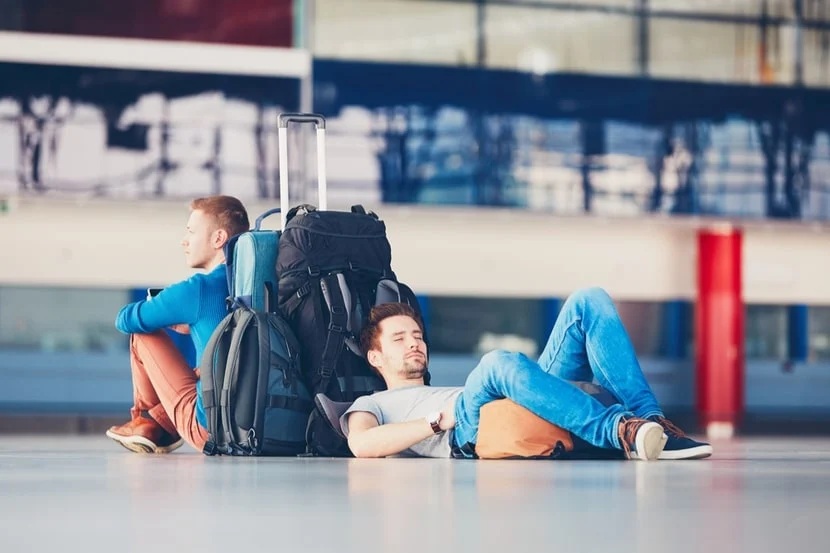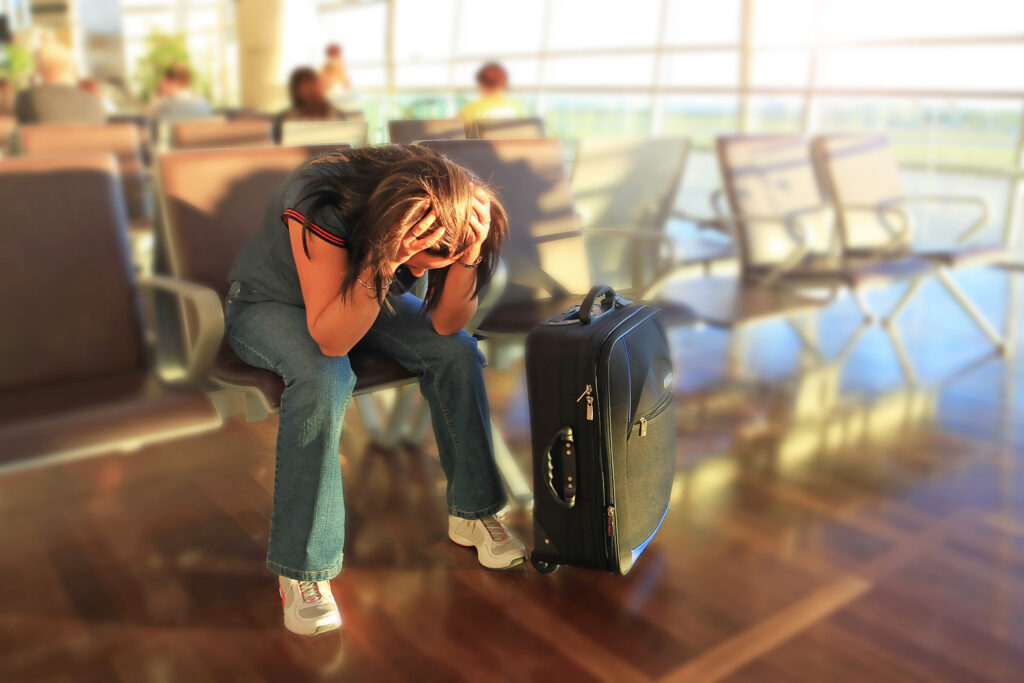VANCOUVER – Flight disruptions and cancellations have become a normal part of air travel across Canada, with numbers rising each year. Travellers can’t afford to ignore what this means—missed connections, lost time, and unexpected costs.
With new rules coming into effect for 2025, it’s now more important than ever to know exactly what airlines owe when things go wrong.
Recent changes to federal regulations set out clear standards for compensation, no matter if you’re flying with a big airline or a smaller carrier. From cash payments for long delays and denied boarding to faster refunds, the guidelines aim to protect passengers and hold airlines accountable.
Knowing your rights under these updates can help you claim what’s fair and avoid being left in the dark when plans fall apart.
Canadian Air Passenger Rights: The Legal Framework
Air travel in Canada comes with legal protections that support travellers when plans go sideways. The updated Air Passenger Protection Regulations (APPR) continue to back passenger rights for delays, cancellations, denied boarding, and baggage mishaps.
Heading into 2025, these rules set clear expectations for both domestic and international flights, while guided by the Canadian Transportation Agency (CTA). The latest updates address what qualifies as a “disruption,” what compensation looks like, and what airlines must do if things don’t go as planned. Understanding these details helps travellers make claims with confidence, no matter the airline or flight distance.
Types of Flight Disruptions and Airline Obligations
The APPR splits disruptions into three categories:
- Within the airline’s control: These are usually avoidable operational or booking issues, like mechanical problems (unrelated to safety), overbooking, or crew shortages.
- Within the airline’s control but required for safety: This covers situations such as mandatory safety checks, where the issue might be preventable, but the precaution is required for safe operations.
- Outside the airline’s control: Think of weather, political unrest, or air traffic control decisions—situations airlines can’t influence.
Each category comes with its own set of obligations for airlines:
- Within the Airline’s Control
- Compensation for delays and cancellations applies.
- Rebooking options are required at no extra cost.
- Airlines must offer food, drink, and access to communication for delays over two hours.
- Overnight delays mean hotel accommodation and transportation must be provided.
- Within Control but Required for Safety
- No financial compensation is required.
- Rebooking and standard care (meals, communication, accommodation) must still be offered.
- Passengers receive regular status updates every 30 minutes during delays.
- Outside Airline’s Control
- Airlines do not owe compensation.
- They must still help rebook or refund, and offer care (meals, accommodation) if stranded for long periods.
Denying boarding follows similar categories. Airlines must first seek volunteers and prioritise families, children, and persons with disabilities for protection. More on traveller obligations and these rules are available in the official Air Passenger Protection Regulations Highlights and direct guidance from the Canadian Transportation Agency.
Overview of Compensation Amounts for 2025
The 2025 regulations introduce updated amounts for compensation, reflecting a divide between large and small airlines. Here are the specifics:
For “Large” Airlines (over 2 million travellers annually):
- Delays of 3-6 hours: $400
- Delays of more than 6 hours: $700
- Cancellations or Denied Boarding: $700 if notified less than 12 hours before departure; $1000 for longer notice periods when no alternative is provided within prescribed timelines.
For “Small” Airlines (fewer than 2 million travellers annually):
- Delays of 3-6 hours: $125
- Delays of more than 6 hours: $250
- Cancellations or Denied Boarding: $250 if notified less than 12 hours before departure; $500 with longer notice periods if not rebooked soon.
Passengers must submit a claim within 12 months of their disruption. Airlines are legally required to respond within 30 days. If the airline refuses or fails to respond, passengers have the right to escalate their complaint to the Canadian Transportation Agency. Airlines cannot refuse claims simply because the passenger accepted meals, accommodations, or minor vouchers during their wait.
Travellers flying internationally should note deadlines for baggage claims: seven days for damaged baggage and 21 days for delayed bags. Domestic timelines may be shorter, as detailed in this Flight Delays and Cancellations: A Guide.
Keeping track of these timelines, knowing what’s owed, and acting quickly are the best ways to make sure you’re not left empty-handed when travel takes a turn. The latest APPR rules spell out the steps for submitting and escalating complaints and can help you make your claim as smooth as possible.
Claiming Compensation: Process, Eligibility, and Documentation
When a flight disruption hits, quick and organised action makes a difference. Knowing the right steps, what qualifies for compensation, and which papers to keep can help travellers get the money or help they deserve. This section breaks down what to do from the moment a delay or cancellation is announced, what qualifies as a claim, and how to press forward if the airline’s response falls short.
What to Do During a Flight Disruption
Travellers facing a sudden delay, cancellation, or denied boarding may feel powerless in the moment. Acting early and methodically, however, boosts the chances of a successful claim. Here’s a simple plan for handling the disruption:
- Get written proof: Ask the airline for a written explanation. This can be an email, a note, or any official document outlining why the disruption happened. It helps clarify if the issue falls within the airline’s control or was unavoidable.
- Save all receipts: Hold onto receipts for meals, accommodation, and extra travel costs like taxis. If you need to buy essentials, keep proof. These documents support your claim for out-of-pocket costs.
- Take photos and screenshots: Use your phone to capture flight status boards, gate information, and any updates from the airline’s website or app. Digital evidence can become useful if the story later changes.
- Record communications: Note down who you spoke to, when, and what was said in your chats with airline staff.
- Ask about your rights: Airlines should provide written notice about passenger rights. If they don’t, request it directly at the counter.
- Document denied boarding: If you’re bumped from a flight, note whether the airline asked for volunteers and how they chose who stayed behind.
Once the dust settles, travellers have up to one year to submit a claim, according to the official compensation rules for flight delays and cancellations. Make claims in writing—emails help create a clear paper trail. Airlines are then obligated to reply within 30 days.
Escalation and Dispute Resolution
When airlines give vague answers or deny a rightful claim, travellers are not out of options. Canada provides a clear pathway to challenge unresolved complaints.
- Follow-up in writing: If the response from the airline is unclear or unsatisfactory, reply with a detailed written statement. Reference your earlier claim, attach all supporting documentation (receipts, written explanations, screenshots), and restate your demand.
- Gather supporting evidence: The stronger the documentation, the better. Attach everything collected—from receipts and emails to official disruption explanations. Organise these by date and flight number.
- Escalate to the Canadian Transportation Agency (CTA): If communications stall or compensation is denied, travellers can submit a complaint directly to the CTA. This independent body reviews airline conduct and can order compensation if warranted.
- How to submit: File a complaint through the CTA’s official air travel complaints resolution process. The process is straightforward, and all forms can be submitted online. Be sure to include all evidence and a summary of your interactions with the airline.
- Keep it transparent: Clear, honest information matters. Disclose everything related to the claim and avoid withholding any details.
The CTA outlines the full complaints process, including response timelines and what travellers should expect. The more organised and thorough the documentation, the easier it is for officials to review a case.
Good documentation and persistence rarely go unrewarded. With a logical approach, passengers boost their chances of recovering costs and holding airlines to the standards set for 2025 and beyond.
Special Considerations and Frequently Asked Questions
Every travel story comes with its twists, especially when things go off script. The rules around flight disruption compensation in Canada are pretty clear, but some situations raise extra questions. Whether it’s lost bags, complicated disruptions, travelling with children, or crossing borders, it’s smart to know what to expect and how to act fast. This section tackles the common “what ifs,” so travellers are never left guessing.
Handling Baggage Delays, Loss, and Damage
Lost, delayed, or damaged luggage isn’t just an inconvenience — it can add stress and unexpected costs to any trip. Under Canada’s Air Passenger Protection Regulations (APPR) and international treaties, airlines have clear duties when bags go missing or get damaged.
Compensation Limits and Covered Expenses:
- For most flights, the current maximum compensation is about $2,800 for baggage issues, including necessary replacement items. International flights may vary by currency exchange and conventions.
- Airlines are expected to cover essentials you have to buy while waiting for delayed bags — think toiletries, a change of clothes, or urgent baby supplies.
- It’s vital to check with your airline for their specific baggage claim rules. For a current overview, see the official APPR guidance for lost, damaged, or delayed baggage.
How to File a Claim:
- Act fast: Report lost or damaged baggage before leaving the airport. Most airlines require immediate notification at the baggage service counter.
- For delayed baggage, file a written claim within seven days of receiving your bag (international), or shorter timelines may apply domestically.
- Include documentation: Boarding passes, baggage tags, receipts for out-of-pocket expenses, and photos (if baggage is damaged).
Most airlines have online forms or call centres for baggage issues. For step-by-step advice, review Air Canada’s delayed or damaged baggage page or WestJet’s baggage help page.
Multiple Causes and Special Cases
Sometimes, flight disruptions have more than one reason. Maybe a crew shortage starts the problem, but the weather makes it worse. Under Canadian rules, compensation is only owed if the main cause is under the airline’s control, not for weather or air traffic issues.
How Compensation Is Assessed:
- Airlines must identify and explain the principal reason for the disruption. If there are several causes, the compensation decision follows the one with the biggest impact on your delay.
- Communication matters: Airlines are required to give clear information about the reason for your delay or cancellation.
- Passengers should keep these explanations in writing. If the story changes, you have proof to back up your claim.
For more on compensation when delays involve mixed causes, Air Canada highlights how they assess and communicate disruptions on their flight delays, cancellations, and disruptions page, while additional background is available in the Flight Delays and Cancellations Guide.
Travel with Children and Other Special Needs
Parents and travellers with special needs have extra rights during flight disruptions. Air carriers in Canada need to provide reasonable help and accommodations for families, children, and passengers facing additional challenges.
Key Accommodations:
- If a child travels alone, airlines offer unaccompanied minor services and require caregivers to stay at the airport until wheels-up, especially during disruptions. Get practical details on Air Canada’s Unaccompanied Minors page.
- During long delays, airlines will try to keep family groups together and offer priority services when possible.
- Passengers with disabilities are entitled to extra support, such as mobility assistance, accessible seating, or communications tailored to their needs.
- Canada maintains strict rules to prevent separating children under 14 from their parent, guardian, or travel companion during rebooking.
Having travel documents ready, such as a consent letter for children travelling internationally, can smooth out problems at the border. Learn tips from the official children travelling abroad FAQ.
International Considerations: The Montreal and Warsaw Conventions
International routes follow extra rules. The Montreal Convention (MC99) and, less often now, the older Warsaw Convention, set out compensation rights for disruptions between member countries.
Special Protections and Claim Limits:
- The Montreal Convention gives travelers the right to claim for both flight delays and lost or damaged baggage on international trips, with compensation often capped at about 5,346 Special Drawing Rights (SDR), which is an international reserve currency—usually more than $7,000 CAD.
- Claims for delays or baggage problems on international flights must be made quickly. For baggage, written notice usually must arrive within seven days for damage and 21 days for late bags.
- Travellers should refer to the Montreal Convention overview to understand how to file and what’s covered, along with in-depth explanations from resources like Understanding Passenger Rights on International Flights.
Remember, international claims can differ depending on ticket type, connection cities, and even where a claim must be submitted. Always keep all paperwork, tickets, and written airline responses to support your claim.
By staying informed and organised, travellers in Canada and beyond put themselves in the best position to secure flight disruption compensation or assistance, no matter how complicated the journey.
Conclusion
Understanding flight disruption compensation helps Canadians take control when travel hits a snag. Knowing the steps—documenting the delay, keeping receipts, filing claims quickly, and following up—empowers travellers to stand up for what’s owed.
New rules make passenger rights clearer than ever, with set payouts and deadlines so no one has to guess what they’re entitled to. Improvements like faster refunds and better care during delays are raising the bar every year.
Travellers can stay informed and ready by bookmarking resources like the Air Passenger Protection Regulations guide or checking updates on their airline’s site. With knowledge and organisation, Canadians can turn a frustrating delay into fair compensation.
Thanks for reading—sharing experiences helps everyone. For more tips on travel rights and updates about changing regulations, keep this site on your list.











